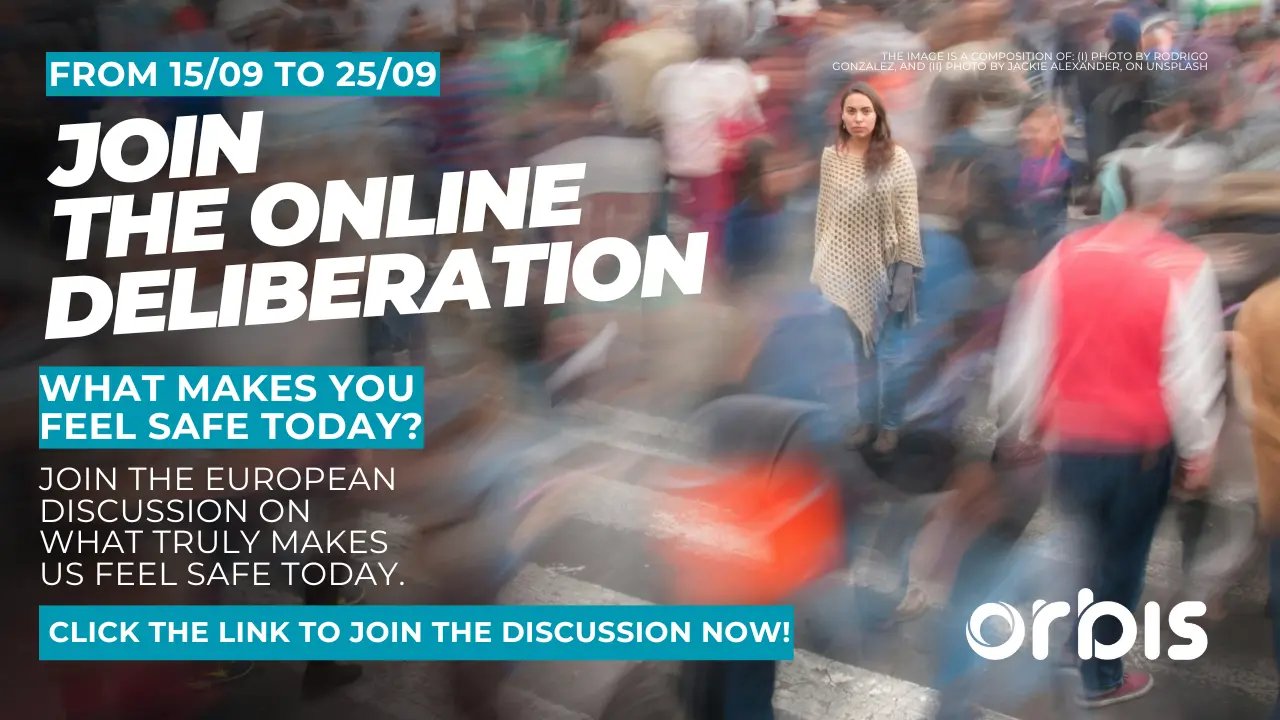The ORBIS project, funded by Horizon Europe, and coordinated by Francesca Rizzo, and co-coordinated by Grazia Concilio from DASTU, is launching a new stage of its AI-enhanced deliberative experiments: a large-scale online dialogue open to everyone.
Period: 15 September – 31 October 2025
Visit the initiative: https://orbis-project.eu/common-pilot/
The dialogue opens a EU-wide reflection on the evolving meaning of safety in our lives. Is it peace, financial stability, access to housing, clean air, or something else entirely?
This initiative is part of ORBIS’s mission to strengthen deliberative democracy at scale. Through digital tools, co-creation methods, and inclusive engagement, Orbis is building pathways for citizens to influence how public decisions are made — and to ensure those decisions are grounded in real people's experiences.
This dialogue unfolds in three steps and a final event:
Step 1: Quick Survey on Polis Orbis
15 – 25 September
Take the Survey on Polis Orbis
Start by sharing your views in a short, interactive survey — anonymous and mobile-friendly. As you participate, you’ll see how others are responding too. What makes you feel secure? What worries you? What needs to change?
Step 2: Deeper Dialogue on BCause
6 – 16 October
We’ll go deeper together. Insights from the survey will guide online dialogues hosted on BCause, a desktop platform for thoughtful deliberation. This is where diverse perspectives meet and reflect.
Step 3: Final Voting on Polis Orbis
25 – 28 October on Polis Orbis
Key ideas from the dialogue will return to Polis Orbis for help prioritising the proposals that matter most!
Step 4: Final Event and Live Feedback via Democratic Reflections
31 October at 11:00 CET
This final step brings closure to the dialogue — and opens the door to concrete influence on future policies. The outcomes will be presented during an online event: this is your chance to see how your voice contributed — and to offer one last round of input.
